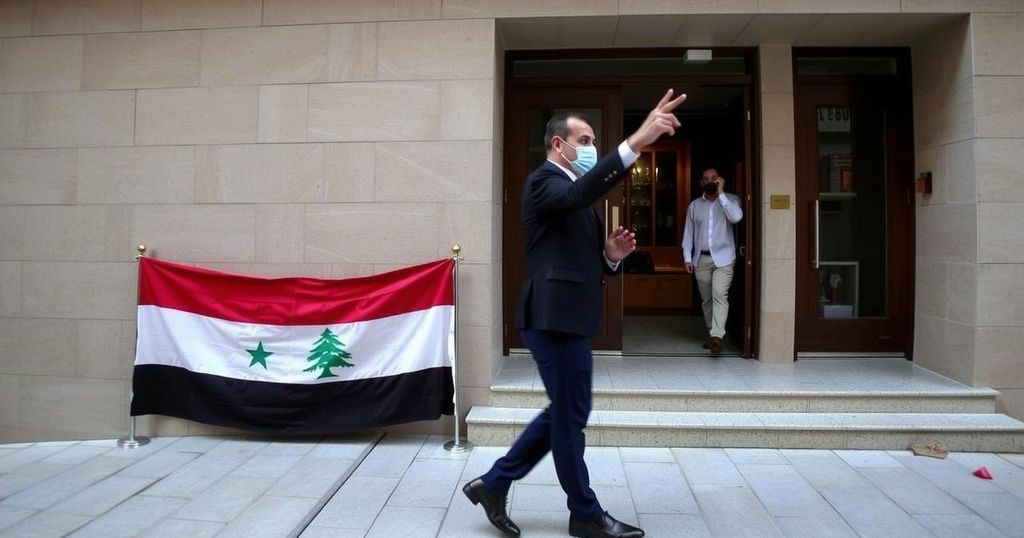Syria’s Embassy in Lebanon Halts Services Amid Political Tensions and Arrests

Syria’s embassy in Lebanon has suspended its consular services following the arrest of relatives of Bashar Assad for alleged passport forgery. Lebanese authorities have returned dozens of Syrians, including former army officers, to the new Syrian government. Tensions between different factions continue to affect regional stability, with concerns over women’s rights in the new political landscape.
The Syrian embassy in Lebanon has suspended its consular services on Saturday, following the arrest of two relatives of the former Syrian President Bashar Assad at Beirut airport for allegedly possessing forged passports. Concurrently, Lebanese authorities transferred approximately seventy individuals, including former Syrian army officers, back to Syria after these individuals were apprehended for illegally entering Lebanon. The embassy’s suspension was announced through social media, citing directives from the Syrian foreign ministry without providing detailed explanations regarding the decision.
The current political situation in Syria is characterized by power shifts and regional implications as new leadership emerges following years of conflict. Ahmad al-Sharaa, formerly known as Abu Mohammed al-Golani and associated with the insurgent group Hayat Tahrir al-Sham (HTS), now leads the newly formed Syrian government. Regional entities are re-establishing connections with Syria, indicative of ongoing geopolitical maneuvering post-Assad’s rule. The recent tensions and arrests highlight the precarious balance of power and the unrest still present in the region, particularly affecting Kurdish communities and relations with Turkey.
In conclusion, the suspension of consular services at the Syrian embassy in Lebanon underscores the intricate political fabric and the unfolding dynamics as Syria transitions to new governance under HTS. The transfer of individuals, including former military officials, further illustrates the shifting allegiances and tensions in the region. The situation remains volatile, with various factions vying for influence, and underscores the ongoing humanitarian and political challenges that affect all citizens, particularly women, under the emergent regime.
Original Source: apnews.com








